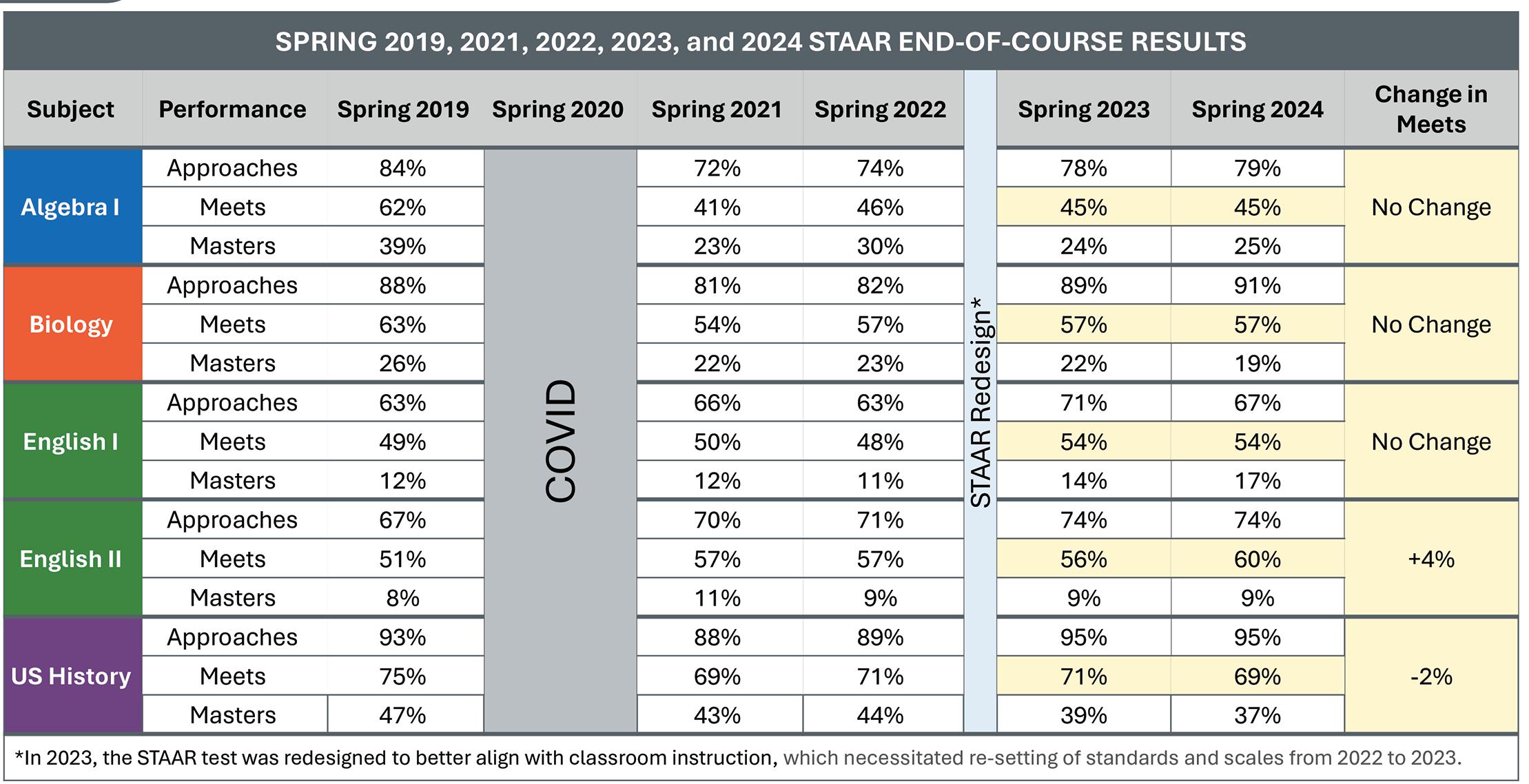Putting Policy into Practice





Imagine this: your car, filled with passengers, is on the side of a busy highway with a flat tire. You find that someone has stolen your spare tire, jack, crowbar and inflation kit. A passerby stops to “help” and presents you with an expensive — and completely useless in this situation — skateboard. Absurd, right?
This is the kind of scenario I envision when we’re in the heat of the voucher battles. Public schools, students and teachers have been struggling for years with insufficient resources. The last thing we need is a remedy that (a) doesn’t begin to address the issue, and (b) simply doesn’t make sense.
And yet, once again, we will be fighting the voucher battle in the upcoming 2025 legislative session. Will it be possible to get past the voucher debate to put the spotlight on what schools and teachers actually need?
Vouchers represent a real danger to public schools, if for no other reason than the passage of such a program is a clear move to avoid providing necessary resources to the public school system. Our education system has been underfunded for years and diverting funds to private schools will only make things worse.
But that danger can seem remote to front-line educators, who face many more immediate obstacles on a daily basis.
Voucher fatigue is real. Like embattled parents weary of their child’s pleas for the latest toy fad at Christmas, some lawmakers may have reached the “shut up already” stage, willing to appease the voucher proponents so they can move on to a different issue. Educators are probably tired of repeatedly being asked to contact their legislators about vouchers. Those of us advocating for you in Austin are sick to death of having to fight off this boogeyman while real solutions are ignored.
The worst part of all is that the voucher issue has taken over the conversation. It’s easy to think of vouchers as “the war” these days, when in fact this is just the current battleground. Win or lose that voucher battle, Texas students will continue to struggle if the growing list of problems is not adequately addressed.
You know all of the issues, better than I do. But here’s my wish list for the session.
Teacher salaries. Improving salaries doesn’t simply represent a financial reward, however well-deserved that is, but is a means of acknowledging and encouraging the profession. Not just anyone can be a teacher, and those who take on this massive responsibility should be paid appropriately. College students who feel the call to teach, or who would at least like to consider it, shouldn’t cross teaching off their list because of the pay. And we definitely should not be in the position of hiring uncertified teachers just to put warm bodies in classrooms. An across-theboard pay raise for teachers and other professionals, as well as support
Continued on page 23
Texas Classroom Teachers Association
PO Box 1489, Austin, TX 78767-1489
Office hours: 8 a.m. to 6 p.m., weekdays
Phone: 888-879-8282
Fax: 512-469-9527
Website: tcta.org
2024-25
President
Melody Young, Sherman
President-Elect
Vivian Burleson, Northside
Immediate Past President
Nydia Alvarez-Alonzo, Mission
Budget
Thomas Evans, Abilene Curriculum & Instruction
Cristal Isaacks, Levelland Governance
Jennifer Hutchinson, San Marcos
Legislation
Brec Espinoza, Brownwood
Membership
Debra Helbert, Lamar Consolidated Professional Rights & Responsibilities
Sharron Wood, Deweyville
Teacher Personal Services
Melanie Love Hoyt, Pottsboro
Staff Contacts
Executive Director
Ann Fickel
General Counsel
Lonnie F. Hollingsworth Jr. Attorneys
Lonnie F. Hollingsworth Jr.
Holly Eaton
Michael Currie
Gerald Francisco
Julie Leahy
Paige Bruton Williams
Kaylan Dixon Smith
Business Office
Park Brigtsen
Communications
M. Clare Haefner
Legislation
Paige Bruton Williams
Ann Fickel
Lonnie F. Hollingsworth Jr.
Holly Eaton
Pamela McPeters
Quinn McCall
Membership
Persie Tynes
Professional Development and Advocacy
Holly Eaton
Services Corporation
Jan Lanfear
Contract Attorney
Lindsay Gustafson
About TCTA
The Texas Classroom Teachers Association is an independent association for Texas teaching professionals that was founded in 1927. TCTA is based in Austin and is the only statewide teachers association that limits active-level membership to those directly involved in classroom teaching or teaching support.
What would happen if your income was cut to a fraction? This is often the reality for teachers who find themselves with an unexpected
or long-term illness.
The laws that deal with assault against a teacher are designed to shield the teacher victim from further
15
TCTA’s lobby team works between legislative sessions to ensure that the teacher perspective is included, legislative intent is followed, and unintended consequences are minimized as state agencies implement new state requirements. Two issues we’re currently following: implementation of HB 1605 (the bill from the 2023 legislation concerning high-quality instructional materials) and revisions of the rules regarding how special education teachers can demonstrate content competency.
contact with the perpetrator of the assault and to compensate the teacher for lost wages incurred due to physical injuries.
When she was in kindergarten, Melody Young wanted to be a kindergarten teacher. In first grade, she wanted to teach that grade, too. The pattern continued until she took Algebra I in eighth grade and found her calling — knowing she would become a math teacher.
Editor, THE CLASSROOM TEACHER, PO Box 1489, Austin, Texas 78767-1489. TCTA is located at 700 Guadalupe, Austin, Texas 78701. PERIODICALS POSTAGE PAID AT AUSTIN, TEXAS.

STAAR scores released in June by TEA show mixed results as students in grades 3-8 and high schoolers taking end-ofcourse exams continue to recover from disruptions to learning during the COVID-19 pandemic.
State data released June 6 for STAAR end-of-course exams show students are still struggling in math. The percentage of students who took the end-of-course test this spring and met grade level for Algebra I was 45%, the same as last year. But the results are still 17 percentage points below students’ scores in spring 2019.
The percentage of students meeting grade level also remained consistent in Biology and English I. In English II, there was an increase of 4 percentage points among students meeting grade level, reaching 60%. In U.S. History, there was a decrease in the percentage of students meeting grade level from 71% to 69%.
One highlight from this year’s STAAR end-of-course results is the increase in the percentage of emergent bilingual students who met grade level across all EOC assessments. Emergent bilingual students saw an increase in English I and II, rising 4 percentage points in grade-level proficiency. TEA said this improvement is particularly significant as it represents a substantial population of students, with 24% of Texas’ 5.5 million public school students classified as emergent bilingual.
State testing data for grades 3-8 released June 14 show students’ math and science scores slipped.
Elementary students who took the STAAR exam this spring saw declines in science comprehension. Only 26% of fifth graders met science grade-level standards, a decline of 21 percentage points from 2019. About 41% of students demonstrated an adequate understanding of math on their tests, with declines across grades compared to last year.
The results show the toll the COVID-19 pandemic exacted on student learning and the long road toward recovery still ahead.
“It’s clear that math performance is not where students need it to be for success after graduation,” Education Commissioner Mike Morath said in a statement. “Pandemic-induced disruptions to learning exacerbated students’ difficulties in mastering fundamental math concepts.”
Among the bright spots in the grade 3-8 results are the gains by emergent bilingual students. Though their scores still lag behind the rest of the state, emergent bilingual students surpassed pre-pandemic levels in reading and social studies by 12 and 6 percentage points, respectively. Emergent bilingual students made more progress in narrowing the gap between their pre- and post-pandemic performance in math and science, compared to their peers.
See individual and district scores
Parents can view their child’s individual STAAR EOC results by visiting their school district’s family portal or TexasAssessment.gov using the unique access code provided by their child’s school.
Educators can go to https://txresearchportal.com/ to view STAAR data by region, district, campus and grade level.
Several changes are coming to TRS-Care in 2025. During its July meeting, the TRS Board of Trustees set rates and benefits for the newly approved TRS-Care Vision and TRS-Care Dental plans. It also set premiums for TRS-Care Standard (the health plan for non-Medicare eligible participants), lowered premiums for TRS-Care Medicare Advantage and announced an opportunity for open enrollment in Medicare Advantage. Starting Oct. 1, retirees eligible for TRS-Care medical plans can enroll in plans for vision and/or dental care through a new partnership with MetLife. Enrollment ends Dec. 7 and coverage begins in January 2025. Enroll by calling 888-237-6762.
MetLife’s dental network includes 130,000 providers, and the benefit structure is the same for in- and out-of-network dentists. Monthly dental premiums range from $41.62 for retirees to $129.92 for retirees and families.
MetLife’s vision network includes 167,000 providers and retailers, including LensCrafters, Walmart Vision Centers and Target Optical. Monthly premiums range from $6.89 for retirees to $24.08 for retirees and families. TRS-Care Vision plans have different benefits, deductibles and co-pays for innetwork and out-of-network providers.
TRS-Care
(non-Medicare eligible)
TRS-Care Standard will not experience a premium change and will continue to offer competitive pricing at 20% to 30% of the cost of individual market plans.
IRS guidelines require increases to deductibles in 2025 so that pre-Medicare participants can continue to contribute to and use a health savings account. Deductibles will increase by $50 in-network and $100 out-of-network for individuals, and $100 in-network and $200 out-of-network for retirees and families.
TRS-Care Medicare Advantage changes
Retirees enrolled in TRS-Care Medicare Advantage will have lower premiums after trustees approved a 45% reduction in costs for plan year 2025, which is more in line with the market. Individual retirees will save $60 per month on premiums, while retirees with family coverage save $407.
TRS and MetLife staff will answer questions from attendees during three webinars in October to review the TRS-Care Dental and TRS-Care Vision plans, benefits and costs before enrollment begins.
Free one-hour webinars are planned at 11 a.m. Oct. 4, Oct. 15 and Oct. 17 for TRS-Care retirees and eligible dependents interested in adding dental and vision coverage in 2025.
TRS plans free one-hour webinars at 10 a.m. Aug. 30, Sept. 8 and Oct. 3 to explain 2025 medical and prescription drug benefits for retirees enrolled in or those about to be eligible for TRS-Care Medicare.
Free one-hour webinars will be held at 10 a.m. Sept. 9 and Oct. 11 to explain TRS-Care Standard medical and prescription drug benefits in 2025.
In-person health fairs also are planned across the state in August, September and October to explain options.
Go to https://www.trs.texas.gov/Pages/healthcare_ benefits_events.aspx to learn more and register.
To help eligible retirees take advantage of the lower premiums, TRS will hold open enrollment for TRS-Care Medicare Advantage between Oct. 1, 2024, and March 31, 2026 (18 months). Medicare-eligible retirees or surviving spouses aged 65 or older, may enroll if:
1. You were eligible for TRS-Care when you retired, even if you didn’t enroll.
2. You were previously enrolled in TRS-Care and terminated coverage.
3. You’re a surviving spouse and/or dependent of a deceased TRS-Care-eligible retiree.
Learn more about all of the TRS-Care changes for 2025 at www.trs.texas.gov/files/2025_trs_care_plan_highlights.pdf
Rates for TRS-ActiveCare participants will increase in the 2024-25 school year after the TRS Board of Trustees approved plan costs during its May meeting.
TRS said most participants will see premium increases below 10%, though rates are based on region and reflect what TRS spends on participant health care. Health care costs continue to rise, but TRS reports that its ActiveCare premiums continue to be lower than comparable plans.
TRS also approved some benefit adjustments, such as
higher deductibles for the 2024-25 year.
Along with ActiveCare rates, TRS also approved higher premiums for HMO plans in West and South Texas and announced the Baylor Scott & White HMO in Central Texas will be discontinued. That change affects about 3% of TRS health plan participants (about 12,000 people), who will have to choose ActiveCare plans for 2024-25.
Go to https://tinyurl.com/bddyzthe for more on 2024-25 TRS-ActiveCare rates in each region.
TEA has developed an optional Alternate Domain 1 for T-TESS to address the shift in teacher responsibilities from lesson planning to lesson internalization for those school districts using high-quality instructional materials, the adoption of which is encouraged by House Bill 1605.
Among the common components of high-quality instructional materials are prewritten weekly and unit lesson plans, which prompted TEA to pursue several initiatives that reflect a new emphasis on lesson internalization and evaluation of instructional materials as opposed to lesson design. Those initiatives included the development of an Alternate Domain I for T-TESS, which is optional for districts to use, and is
scheduled to go into effect for the 2024-25 school year. Alternate Domain 1 was incorporated into TEA rules regarding teacher appraisal in the fall of 2023.
To prepare for implementation of Alternate Domain 1, TEA recently announced the availability of appraiser training sessions, requiring districts that wish to use Alternate Domain 1 for 2024-25 to ensure that appraisers have completed the training prior to the start of teacher evaluations.
TCTA was involved in the process of developing Alternate Domain 1 and will continue to work to ensure that it is used accurately and appropriately as it is implemented.
During its June meeting, the State Board of Education took no action against recommendations made by Education Commissioner Mike Morath, opening the door for four new charter schools to begin operations:
• Infinite Minds in Arlington
• Pathway Academy in Big Spring
• The Texas Girls School in Austin
• Unparalleled Preparatory Academy in Manor
The board vetoed a charter for Visionary STEM Academy (Terrell).
With the application process complete, the four approved charters will engage
in contingency discussions with TEA before contracts are signed. These may include a review of curriculum alignment to the state standards (TEKS) and clarification of policies, staffing and board bylaws. If contracts are signed, the new charter schools will open in August 2025.
TCTA members honored as teachers of the year during 2023-24
Several TCTA members were honored as campus and/or district teachers of the year during the 2023-24 school year:
• Keisha Lovell, a second grade math teacher at Maude Moore Wood Elementary School, was named Killeen ISD’s Elementary Teacher of the Year.
• Math teacher Cheryl Swiech was named Rockdale High School teacher of the year in Rockdale ISD, earning the Golden Apple Award.
• Victoria Rangel was named Teacher of the Year at Truan High School in Edcouch-Elsa ISD.
• Erick Hurtado was named Teacher of the Year at Ybarra Middle School in Edcouch-Elsa ISD.
• Melissa Amaya was named Teacher of the Year at Kennedy Elementary School in Edcouch-Elsa ISD.

• Patricia Castillo was named Teacher of the Year at Rodriguez Elementary School in Edcouch-Elsa ISD.
• Lorena Quiroz was named Teacher of the Year at Johnson Elementary School in Edcouch-Elsa ISD.
• Leticia Montemayor was named Teacher of the Year at Garcia Elementary School in Edcouch-Elsa ISD.
• Bryanna Gutierrez was named Teacher of the Year at Gutierrez Early Childhood Center in Edcouch-Elsa ISD.
TCTA member Jose Rodriguez, a video game design and programming teacher at Edcouch-Elsa High School in Edcouch-Elsa ISD, was a featured presenter during the Texas Computer Education Association’s 2024 conference. His presentation showcased the success of the EEHS Esports Club model and highlighted the positive outcomes for students involved in esports. TCTA member Erik Niño serves as co-sponsor of the EEHS Esports Club.
Share your success with us! Were you chosen as your campus Teacher of the Year? Did you win an award or receive grant funding? Email communications@tcta.org and tell us about your recognition so we can share it in The Classroom Teacher
Many school districts are bracing for budget and staffing cuts in the 2024-25 school year after the Texas Legislature failed to pass a significant funding increase for public schools in 2023. But Gov. Greg Abbott told Lubbock-based radio station KYFO in May that he and other state lawmakers are not responsible for the shortfalls. Instead, he blames some districts for not managing federal COVID-relief funds that are expiring soon.
“The federal government just sent a boatload of money to our schools, and that increased their budgets dramatically,” Abbott told KYFO. “Some schools were responsible in their budgeting to make sure that would not happen; others not so much. Some school districts, for example, took that money and hired additional people, and now they do not have that money coming into them from the federal government, and as a result, they have to lay off those people, and that’s a consequence of spending the money that way.”
Texas officials reported a record $32 billion surplus in the state’s bank account last year, but the Legislature failed to increase funding when the House refused to pass a voucher bill to satisfy top leadership. According to the latest estimate from the state comptroller, Texas lawmakers are projected to have about $21.3 billion in available revenue at the outset of the 89th Texas Legislature, which begins Jan. 14, 2025.
Lt. Gov. Dan Patrick included 57 items on a to-do list for state Senate committees before the session starts in January. His interim charges for the Senate Education Committee include:
Reading and Math Readiness: Study current local, state, and national policies and programs that improve student achievement in reading and math, with an emphasis on “early readiness” in grades preK-5. Make recommendations to ensure every student has a strong academic foundation in reading and math.
Testing Reform: Review the state’s current development and phase-in of the STAAR test redesign and ongoing innovative assessment reforms, including the Texas Through-Year Assessment Pilot (TTAP). Recommend ways to accelerate current testing improvement efforts and the development of a real-time testing program that meets the educational needs of Texas students.
COVID-19 Funding Oversight: Examine and report on how public schools spent federal funds since the beginning of the pandemic, including funds received under the American Rescue Plan Act, with a dual focus on demonstrated improved student outcomes and efficient use of taxpayer funds.
Monitoring: Monitor the implementation of legislation addressed by the Senate Committee on Education passed by the 88th Legislature, as well as relevant agencies and

programs under the committee’s jurisdiction. Specifically, make recommendations for any legislation needed to improve, enhance, or complete implementation of the following:
• measures ensuring public school safety;
• oversight of public school library procurement and content policies; and
• high-quality instructional materials and open-educational resources for public schools.
Patrick tasked the State Affairs Committee with studying the impact of social media use on children, including the implementation of House Bill 18 from 2023, which protects minors from harmful, deceptive, or unfair trade practices in connection with the use of certain digital services and electronic devices, including the use and transfer of electronic devices to students by a public school.
House Speaker Dade Phelan also released interim charges for House committees. His top priorities include examining the use of school voucher-like programs in other states and considering new ways to further drive down property taxes for homeowners.
Other education-related charges for House committees include monitoring the implementation of bills from 2023, including HB 1605 related to instructional materials (see page 16 for more on HB 1605) and HB 3 regarding school safety, and examining the impact hiring noncertified teachers has on student learning.
Read more legislative news at tcta.org/capitol-updates.
In late June, the U.S. Supreme Court ruled on two cases, Loper Bright Enterprises v. Raimondo and Relentless, Inc. v. Department of Commerce (collectively referred to as Loper Bright), that reversed the longstanding “Chevron doctrine” (also known as the “Chevron deference”).
The Chevron deference is a 40year directive that provides federal agencies with a preferred standing in framing federal regulations. Specifically, the Chevron doctrine requires federal courts to defer to a government agency’s interpretation when issuing policies and regulations that clarify ambiguous legislation.
The Loper Bright ruling found the original decision to be inconsistent with the Administrative Procedures Act that places responsibility on the courts to decide if statutes are aligned with agency rules. The Administrative Procedures Act governs the process by which federal agencies develop and issue regulations. It stipulates that an agency must publish notices of rulemaking in the Federal Register, and requires the agency to respond to public comments on the proposed rule. As agencies have increasingly used the rulemaking process to impose their own policies, legal challenges against federal rules have become more common.
Implications from the Loper Bright ruling are that there will be an increase, and possibly success, in challenging many federal regulations. Going forward, executive agencies may proceed more cautiously in drafting new
regulations and Congress will need to produce legislative text with greater specificity.
The Loper Bright ruling will call into question the regulatory power of the U.S. Department of Education and other federal agencies, given a pathway for a court review. The Department of Education often employs a negotiated rulemaking model in addressing contentious policies. In using this model, the agency convenes a committee of stakeholder representatives with varying interests and, assisted by a facilitator, attempts to reach unanimous consensus on a regulation, typically working from a draft prepared by the agency. If the committee is unable to reach consensus, the agency retains authority to advance its own proposed regulation for public comment.
The Department of Education has been actively pursuing a regulatory agenda that includes student debt forgiveness, gainful employment accountability for for-profit programs and nondegree programs, and changes to Title IX regarding sexual harassment and the inclusion of LGBTQ students as a protected class. K-12 regulations could also be reexamined, specifically those relating to student data records,
the use of restraint and seclusion, equitable services and any future Elementary and Secondary Education Act-related guidance on academic standards, assessment, and accountability. In terms of looking back on prior regulations, the Supreme Court held to a sixyear limitation for claims under the Administrative Procedures Act, which starts when an agency rule injures a plaintiff, not when the agency issued the rule.
Within hours of the Loper Bright decision, U.S. Sen. Bill Cassidy (R-LA), the ranking member on the Senate Health, Education, Labor and Pensions (HELP) committee formally asked Education Secretary Miguel Cardona to explain how the agency will adapt in light of the Loper Bright ruling.
The Department of Education has often used its regulatory powers to craft policy in the interest of the presiding administration, and Republicans are signaling they will aggressively pursue overturning agency regulations issued under the Biden administration.
Opponents of the Supreme Court decision question the ability of sitting judges to offer judgments that could require an understanding of the technical details of a subject matter. With this court ruling and the potential for Republicans to gain political power in the next Congress, we can expect more scrutiny of federal regulations.
The annual federal budget cycle is in high gear, as both the House and Senate are working on the

The Loper Bright ruling will call into question the regulatory power of the U.S. Department of Education and other federal agencies, given a pathway for a court review.
Fiscal Year 2025 spending bill for the U.S. Department of Education.
The process began in March when the Biden administration released its budget proposal recommending an overall funding level of $82.4 billion for the Department of Education, an increase of $3.3 billion over the FY 2024 enacted funding level. The president’s proposal included investments to expand public preschool and increase support for Title I schools in a post-COVID environment; along with increased funding for educator recruitment,
preparation, retention, and professional learning.
While the president’s budget request reflects agency priorities, it is Congress’ responsibility to fund agencies through the annual appropriations process. In June, the House Appropriations Committee, led by a Republican majority, released its funding proposal that largely ignored the president’s budget request. The House FY 2025 education bill eliminates over 17 programs in K-12 and higher education. Many programs also saw reductions
that totaled a 11% decrease, as the majority party in the House seeks to reduce federal spending and eliminate program duplication. The Senate is expected to release a FY 2025 education funding bill that will protect most programs and include a 1% overall increase over the FY 2024 enacted level. The House and Senate appropriations committees will then negotiate on a final bill later in the year.
With the upcoming November elections, we anticipate that Congress will delay the final appropriation bills, possibly to the end of the year, by issuing a continuing resolution. This will keep the government running when the new fiscal year starts on Oct. 1.
This article is provided by Van Scoyoc Associates, TCTA’s retained lobby firm in Washington, D.C.
It is not a secret that teachers’ salaries do not adequately reflect the essential public service you provide. What would happen if your income was cut to a fraction?
This is often the reality for teachers who find themselves with an unexpected disability or longterm illness, and it is a situation that calls for more accessible information and planning for educators.
In spring’s Planning Ahead article, we addressed Achieving Financial Goals for Your Future, including those for your retirement. While it is much more common for us to plan for our retirement than to prepare ourselves for an unexpected disability prior to retirement age, retirement planning should begin with disability protection. Unexpected injury or illness can happen to anyone — 40% of men and 28% of women either die or become disabled and unable to work before retirement age. Most of these workers become disabled in their mid- to late 50s.
A disability could affect your ability to work for months or even years. Even if you become disabled for just six months, how would you cover your bills and medical expenses?
Let’s explore what is currently available for teachers who become disabled. There are several options that may be available at the federal, state and local levels depending on your circumstances.
• The Americans with Disabilities Act prohibits discrimination based on disability in all employment practices. An individual with a disability is defined by the ADA as a person who has a physical or mental impairment that substantially limits one or more major life activities, has a record of such an impairment, or is regarded as having such an impairment. Employers are required to make reasonable accommodations in the workplace for a qualified individual with a disability.
• The Family and Medical Leave Act provides certain employees with up to 12 weeks of unpaid, job-protected leave per year. It also requires that the employer’s contribution to their group health benefits be maintained during that leave. Examples of FMLA eligibility include: pregnancy and prenatal care that leaves the employee unable to work, birth and care for a newborn child, and
serious health conditions that temporarily leave an employee unable to work, among others.
• Social Security disability may be an option for some teachers, but you must have worked long enough — and recently enough — under Social Security to qualify for disability benefits. The number of work credits you need to qualify for disability benefits depends on your age when your disability begins. Generally, you need 40 credits, 20 of which were earned in the last 10 years ending with the year your disability begins. Additionally, your condition must significantly limit your ability to do basic work-related activities, such as lifting, standing, walking, sitting, or remembering — for at least 12 months. More information is available at https://www.ssa.gov/disability
• As outlined in the Texas Education Code, the state provides five days per year of paid personal leave, with no limit on accumulation and no restrictions on transferring that leave to another district. Districts and charter schools can provide additional leave beyond this minimum mandated by the state. Almost all districts will distinguish between discretionary and non-discretionary leave. Non-discretionary leave is reserved for occasions that allow little (if any) planning advance, and the leave should be granted in every case. Examples may include the employee’s own illness or a family member’s illness, or emergencies.
• Full-time educators are eligible for a leave of absence for temporary disability at any time your condition interferes with the performance of your normal duties. This leave is unpaid unless you have sick time or personal leave available to use concurrently. But your contract or employment cannot be terminated by the school district while you are on a leave of absence for temporary disability. Districts can decide the maximum length for a leave of absence of temporary disability, but that maximum can be no less than 180 days.
• If you are physically assaulted while performing your normal duties, you are entitled to the number

of assault leave days necessary to recover from all physical injuries sustained as a result of that assault (read more in Legal Notes on page 12). Please note that in any given situation requiring an employee’s absence, a district may, and usually will, require the employee to use all types of applicable leave.
• An employee with a mental or physical disability that is likely permanent and that prohibits further performance of his/her duty may be eligible for disability retirement through the Teacher Retirement System. An individual who qualifies and who has at least 10 years of service credit may opt for a disability retirement and receive an unreduced monthly annuity (calculated using the standard retirement formula), with a minimum annuity of $150. An employee who qualifies for disability retirement but has fewer than 10 years of service credit will receive a monthly benefit of $150 paid for the number of months that the employee worked in a TRS-covered position prior to retirement, the duration of the disability, or the duration of the employee’s life, whichever is least. Other key provisions affect how disability retirement works and whether it is the best option for an employee with a disability. Members should speak to a TRS benefits counselor for more details.
• Each school district (and charter school) has its own absence policy and many offer leave in addition to the minimum personal leave granted to you by law (this additional leave is sometimes called “local leave or “local sick leave”). Consult
your district handbook or district human resources department for more information on local leave options.
When classified as disabled, Texas teachers may file for disability through TRS to seek early retirement. If a teacher has not accrued adequate retirement benefits, they could see a significant reduction in their monthly income, making it difficult to cover expenses. Illnesses and conditions that cause permanent disability are likely to be particularly expensive, often requiring home equipment and care, hospitalizations, and travel to see specialists.
Even with insurance provided through TRS, deductibles and other healthcare expenses may not be feasible. The benefits provided by TRS in many cases may not be adequate.
Disability insurance is an optional insurance plan that could help with basic living costs. It replaces a portion of your income if you suffer a prolonged illness or non-work-related injury that prevents you from doing your job. Disability insurance may be available through your district or can be purchased through the private insurance market.
As you make health care, insurance and other financial decisions for the upcoming school year, keep in mind the need to protect yourself if you become disabled.
The policies governing disability options for teachers are not expected to change drastically in the near future, but what can change is better ensuring teachers understand what is available to them and the possible necessity of obtaining additional forms of coverage.
Everyone wants to feel safe at work. However, educators are often required in the course of their job duties to deal with individuals who behave inappropriately, sometimes violently, toward others. Occasionally, encounters with such individuals result in an assault against a teacher in the workplace.
The laws that deal with assault against a teacher are designed to shield the teacher victim from further contact with the perpetrator of the assault and to compensate the teacher for lost wages incurred due to physical injuries suffered as a result of the assault.
According to the Texas Penal Code, a person commits an assault if the person:
• intentionally, knowingly or recklessly causes bodily injury to another;
• intentionally or knowingly threatens another with imminent bodily injury; or
• intentionally or knowingly causes physical contact with another when the person knows or should reasonably believe that the other will regard the contact as offensive or provocative.
A person commits aggravated assault if the person commits assault and the person causes serious bodily injury to the victim or uses or exhibits a deadly weapon during the commission of the assault. The Texas Penal Code defines “bodily injury” as physical pain, illness or any impairment of physical condition.
The Texas Education Code mandates that a teacher shall remove from class and send to the principal for placement in a disciplinary alternative education program or for expulsion, as appropriate, a student who engages in conduct that constitutes assault causing bodily injury to another or aggravated assault. If the teacher removed the student from class because the student has assaulted the teacher and caused bodily injury to the teacher during that assault, the student may not be returned to class without the teacher’s consent. The teacher may not be coerced to consent.
The statute does not require that criminal charges for assault be filed against the student in order to
remove the student under this provision, only that the student engage in conduct that constitutes assault causing bodily injury.
State law provides that, in addition to all other days of leave provided by the school district, an employee of a school district who is physically assaulted during the performance of the employee’s regular duties is entitled to the number of days of leave necessary to recuperate from all physical injuries sustained as a result of the assault. An educator is entitled to assault leave regardless of who committed the assault and regardless of where the assault occurred, so long as the assault occurred while the educator was performing their regular duties.
At the request of an employee, a school district must immediately assign an employee to assault leave and, on investigation of the claim, may change the assault leave status and charge the leave against the employee’s accrued personal leave or against an employee’s pay if insufficient accrued personal leave is available. Days of assault leave may not be deducted from accrued personal leave. An employee may receive assault leave for up to two years beyond the date of the assault.
For purposes of determining eligibility for assault leave, an employee of a school district is considered to be “physically assaulted” if the person engaging in the conduct causing injury to the employee could be prosecuted for assault or could not be prosecuted for assault only because the person’s age or mental capacity makes them a nonresponsible person for purposes of criminal liability. Note that again, there is no requirement that charges be filed, only that the conduct would constitute assault causing bodily injury if there were a prosecution. An employee whose request for assault leave is denied may file a grievance regarding
Continued on page 22

• Call for help, either from administration, your school resource officer, or a campus security officer. If there is no response and you are in danger of immediate bodily harm or death, call 911.
• Once the immediate situation has been addressed, make an incident report and disciplinary referral, if the perpetrator is a student. If you want the student removed from class, state in the disciplinary referral that the basis for the request for removal is that the student assaulted you, causing injury, and that you do not consent to the student’s return to class.
• Go to the nurse’s office for a preliminary assessment. Get a copy of any paperwork
The laws that deal with assault against a teacher are designed to shield the teacher victim from further contact with the perpetrator of the assault and to compensate the teacher for lost wages.
prepared by the nurse.
• See the campus employee who handles workers’ compensation matters for a referral to the district’s physician. Be sure to get a copy of the “Work Status Report” from the physician.
• If you are required to miss work in order to care for physical injuries, are experiencing pain, or are having trouble properly functioning because of the assault, request assault leave through the district’s absence reporting process.
• If you wish to press criminal charges, follow up with your school resource officer or local police department to confirm receipt of the incident report. Tell the officer that you want to press charges.
• If you are a TCTA member, call the Legal Department at 888-879-8282 to speak with a staff attorney.
Did you know that TCTA rewards members who encourage colleagues to join TCTA for the first time?
Each time you sign up an eligible NEW Active-level TCTA member, ask them to write your membership number or name in the designated box on the membership application. We’ll keep track of the eligible members you recruit and send you $25 for every two submitted between May 1 and Dec. 31.
An eligible new member is defined as an individual who has not previously enjoyed the benefits of Activelevel TCTA membership and who joins in that category for the very first time, qualifying them for the reduced $110 per year rate. This can be a recent college graduate in their first year of teaching or a veteran teacher joining TCTA for the first time. If a teacher is new to your district, they will only qualify if they have not previously been an Active-level TCTA member.
In addition to the many valuable resources you’ll find on our website, tcta.org, and in the eUpdate newsletter, TCTA’s social media channels include Facebook, X (formerly Twitter), Pinterest, YouTube and our newest channel — Instagram. Join the discussion and follow us for valuable reminders, tips on classroom resources, links to the latest education news, and other bits of information.
If you’re not receiving eUpdate in your inbox, check your spam or junk folder and make sure communications@tcta.org is in your contacts or on your safe-sender list.
Need to update your email? Log in to your member record at members.tcta.org and update your information, call the Membership Department at 888879-8282 or resubscribe to eUpdate using the link to our online form at tcta.org/eupdate. Resubscribing may also prompt you to verify your email with Constant Contact to get you back on the list.
The cash incentive is available and paid only in increments of two members. There is no cash reward for recruiting one new member. But, you know that you’ve done your colleague a good turn by introducing them to the many benefits of TCTA membership!
The first round of Take 2 checks is sent in early October. If you’ve only recruited one eligible member at this point, you’ll get a letter saying you need to recruit one more person by Dec. 31 to earn $25.
Proper credit must be given to the individual who did the actual recruiting. “Pooling” all new members together for use in the local affiliate treasury is not allowed and defeats the purpose of rewarding the members who are working hard to recruit for TCTA.
If you have more questions about the program or someone’s eligibility, call the Membership Department at 888-879-8282 or email membership@tcta.org.





TCTA members might wonder what the lobby team is up to in the months between legislative sessions. That time is largely occupied with reviewing rule proposals, drafting revisions, meeting with agency staff and state leaders, testifying at statelevel board meetings, and otherwise advocating for teachers as non-legislative entities proceed with implementation of recently passed bills and other revisions to current rules. The State Board of Education (SBOE), State Board for Educator Certification (SBEC), and the commissioner of education, along with Texas Education Agency staff, play a huge role in developing the rules that






districts and school employees must abide by.
The rulemaking process in Austin involves attention to detail and constant monitoring of proposals as TCTA works to ensure that the teacher perspective is included, legislative intent is followed, and unintended consequences are minimized.
Some of the issues of interest we’re currently following: implementation of HB 1605 (the bill from the 2023 legislation concerning high-quality instructional materials) and revisions of the rules regarding how special education teachers can demonstrate content competency.
Continued on page 16






Continued from page 15
TCTA, through its role as a founding member of the Texas Coalition for Educator Preparation (TCEP), has been instrumental in highlighting with the State Board of Educator Certification the need to ensure that proposed SBEC rules for HB 1605 implementation will comport with provisions that TCTA successfully lobbied to include in the bill. For example, a TCTA amendment prohibiting districts from requiring foundation course teachers to use planning time for designing initial lesson plans (unless they agree to do so via a supplemental contract) was being interpreted as meaning that teacher knowledge of lesson design is no longer an important skill, and thus a reason to exclude teacher knowledge and skills of lesson design from proposed teacher pedagogy standards that will serve as the basis for training teacher candidates and evaluating practicing educators.
TCTA’s HB 1605 amendment was an attempt to preserve a teacher’s ability to develop lesson plans, but to not be required to use limited planning time for this purpose. In fact, an additional TCTA amendment to HB 1605 provides that prohibiting districts from requiring teachers to use planning time for lesson design may not be construed to prohibit a classroom teacher from choosing to spend the teacher’s planning and preparation time creating or selecting instructional materials. TCTA’s efforts through TCEP paid off when the proposed pedagogy standards were recently revised to reinsert an emphasis on lesson design.
HB 1605 implementation is one of the topics that the House Public Education Committee will be reviewing in the months leading up to the 2025 session.
The content of materials being considered for adoption under HB 1605 is a separate issue that has recently generated controversy.
The Texas Education Agency released thousands of pages of instructional materials in a proposed elementary school curriculum that drew immediate criticism from many parents and school officials for infusing religion — particularly Christianity — into public schools. HB 1605 directed TEA to develop stateowned instructional materials for districts to use. If the State Board of Education adopts TEA’s proposed curriculum in November, school districts that use it could get an additional $60 per student in state
TEA’s proposed OER textbooks feature Christian references throughout the kindergarten through fifth grade lessons and have drawn concern from many parents and some school district officials who say the materials raise questions about churchstate separation.
funding, providing a strong incentive for financially struggling districts.
TEA’s Texas Open Education Resources (OER) textbooks — covering K-5 Reading & Language Arts and K-8 Algebra Mathematics — feature Christian references throughout the kindergarten through fifth grade lessons and have drawn concern from many parents and some school district officials who say the materials raise questions about church-state separation.
“The law is clear cut to us — you don’t teach your students a particular religion,” Stan Surratt, superintendent of Lindale ISD told The Texas Tribune. “You can talk about different religions, but we don’t teach Christianity to our students.”
References include the parable of the Good Samaritan in a social studies unit and the biblical teaching of “do unto others as you would have them do unto you” in a kindergarten unit about fairy tales and folktales.
During SBOE’s June meeting, several people who testified during a public hearing raised questions about the lessons’ age-appropriateness and their potential impact on non-Christian students. Some said they believe TEA officials are making curriculum decisions based on their personal beliefs.
Education Commissioner Mike Morath said religious references in TEA’s OER materials only make up a small “but appropriate” fraction of the content pie and said the textbooks mark a shift from a skills-based curriculum to a more “classical, broad-based liberal arts education.”
While more than three-fourths of adults in Texas identify as Christian, about 18% are not affiliated with any religion, according to a Pew Research Center Study. Non-Christian faiths, such as Buddhism, Hinduism and Islam, constitute 4% of adults in Texas.
Public schools are legally prohibited from promoting particular religious beliefs. In Texas, some public schools teach world religions to high school students,
and some offer a Bible elective class in high schools. Elementary students are not usually taught religion.
Michael Lee, superintendent of Booker ISD, told The Texas Tribune his students already perform well under their current curriculum, but added that the possibility of an additional $60 per student is enticing. “We will certainly look at the curriculum,” Lee said. “We will look at any area to find a dollar.”
The State Board of Education is expected to vote on TEA’s OER materials and other submissions in November as it continues its 2024 Instructional Materials Review and Approval (IMRA) process, which is also part of HB 1605’s implementation. The bill charged the SBOE with reviewing and approving highquality instructional materials that ensure full coverage of the Texas Essential Knowledge and Skills (TEKS), align with research-based instructional strategies in each subject area, support all learners and include implementation support for teachers.
SBOE members approved criteria for the IMRA process in January. Those guidelines will help board members determine whether submitted materials should be placed on its list of approved instructional materials. The 2024 IMRA cycle includes materials for K-5 English language arts and reading, K-5 Spanish language arts and reading, and K-12 mathematics. Twenty-five publishers submitted 142 products for review. TEA’s proposed OER K-5 ELA and K-8 math resources are among the materials being reviewed.
“The IMRA process is a critical component in ensuring that educational resources meet the highest standards for Texas kids and are a reflection of Texas values,” SBOE Chairman Aaron Kinsey said. “We invite parents, educators and community members to participate in the review process, as their feedback is invaluable in shaping the future of education.”
The public can submit written comments through Aug. 16 at https://sboe.texas.gov/state-board-ofeducation/imra. Another public hearing is planned for the board’s Sept. 10-13 meeting before the expected vote in November. Along with public comment, all submitted materials are being reviewed by independent teams of professional reviewers — teachers, parents and other curriculum experts — based on how well they support on-grade-level instruction of the SBOE’s curriculum standards.
Any materials approved by SBOE in November will be available for review by school districts in the spring as they make decisions on which, if any, to adopt for local use beginning with the 2025-26 school year.
Continued on page 18
In the past four years, nearly 220,000 students nationwide have been newly identified as in need of special education services. About half are in Texas, and the state is struggling to keep up. And just as the need for qualified special education teachers has exploded, state policy efforts could make it more difficult for current and future special education teachers to be considered qualified.
The rapid influx is driven in part by the state’s lifting of an arbitrary cap that limited the percentage of students in special education after U.S. Department of Education officials told the Texas Education Agency that the cap violated federal law.
Also, Texas clarified that students with dyslexia meet the definition of “specific learning disability” under IDEA, the federal law governing education of special education students.
Another factor was the COVID-19 pandemic, which gave parents a better view of their children’s learning styles, raising concerns for some who noticed their children struggling.
By law, school districts are required to conduct detailed evaluations for students suspected of having a disability within 45 days, at no cost to families. But last fall, State Rep. Gina Hinojosa told Hearst Newspapers she waited months for her son’s dyslexia to be evaluated by Austin ISD. She was so frustrated she said she ended up paying about $2,000 for a private professional to evaluate her son.
As demand for these evaluations has exploded across Texas, school districts like Austin are struggling to retain and hire the school psychologists and other professionals needed to do the work. To fill the gap, Hearst reported, many districts have turned to expensive outside contracting firms, paying premium rates for evaluations by private-sector employees. School districts in Texas spend over $2 billion more on special education than they receive from the state, according to the Texas Education Agency.
“The problem is all over the state,” an Austin ISD administrator said. “Nobody has enough people to do the evaluations.”
Evaluations are the first formal step in determining whether a student has disabilities and the services they must receive to ensure they have access to a “free appropriate public education,” as guaranteed by the
Just as the need for qualified special education teachers has exploded, state policy efforts could make it more difficult for current and future special education teachers to be considered qualified. TCTA is working with TEA and SBEC to help shape changes in how special education teachers show content competency.
federal Individuals with Disabilities Education Act.
Backlog in Austin ISD prompted TEA to appoint monitors last fall to ensure the district’s compliance with state-mandated changes to its special education department. The district finally cleared a backlog of evaluations from before 2022-23 in November.
TEA has been overseeing the Houston ISD special education department since December 2020, and problems implementing special education services played a role in the agency’s complete takeover of the state’s largest public school district last year.
Complicating efforts to meet the needs of special education students is the ongoing struggle statewide to hire enough certified special education teachers in the face of a critical shortage of these teachers. Also entering the equation is a recent TEA effort to change how those special education teachers show content competency.
Months ago, TEA cautioned the State Board for Educator Certification that the current state-sanctioned method of allowing special education teachers to demonstrate content competency (via use of the High Objective Uniform State Standard of Evaluation [HOUSSE] worksheet) did not meet the expectations of current federal education law and proposed devising a new method that would meet federal law and standardize district interpretation across the state.
The agency’s first proposal would have allowed high school teachers to use a similar framework to the HOUSSE worksheet but would have required elementary and middle school teachers to acquire additional certification as the only option to demonstrate content competency.
TCTA was successful in convincing TEA and SBEC to extend the same flexibility to special education middle school teachers as well, in addition to exempting current special education elementary teachers deemed qualified via HOUSSE prior to Sept. 1, 2027, from any requirement to obtain additional content certification, which was reflected in the proposal presented to SBEC at its July meeting.
However, even with current elementary special education teachers grandfathered into the proposed framework, any new elementary teachers placed into elementary special education assignments after Sept. 1, 2027, would still be required to obtain additional certification to remain in their positions under the most recent proposal.
In testimony at SBEC’s July meeting, TCTA pointed out that the same flexibility provided to high school and middle school special education teachers should be provided to elementary teachers after Sept. 1, 2027, highlighting recent data released by TEA showing that 38.5% of EC-5 special education teachers lack both special education and content certification and would thus be required to obtain additional certification.
There is no requirement that educator preparation programs prepare candidates for both special education and content certification, and so a requirement for new special education elementary teachers to obtain additional content certification would mean that educator preparation curriculum for these teachers would need to undergo significant changes as well.
Additionally, the new proposal would require all special education teachers, not just those serving in a teacher of record role, but even those serving in a supporting role, to demonstrate content competency.
The wide range of possible special education assignments comes with an equally wide range of responsibility, so TCTA recommended that the proposal be limited only to teachers of record to clearly differentiate between those who do and do not have to demonstrate content competency.
Board members responded positively to TCTA’s suggestion to include elementary teachers among those who will have ongoing flexibility in demonstrating content competency, and Chair Jean Streepey (a TCTA member) directed TEA staff to include them in the next proposal.
TCTA will continue to monitor the proposal and provide feedback on how to make the forthcoming framework as flexible as possible for all special education teachers.
When she was in kindergarten, Melody Young wanted to be a kindergarten teacher. In first grade, she wanted to teach that grade, too. The pattern continued until she took Algebra I in eighth grade and found her calling — knowing she would become a math teacher.
“I don’t really know why I wanted to be a teacher. I just always knew that was what I was meant to be,” says Young, TCTA’s 2024-25 State President. “I remember playing school as a kid, and I was always the teacher. I loved helping my fellow classmates when they were struggling.”
Now, the longtime teacher at Sherman High School in Sherman ISD helps students struggling with advanced mathematics. While she has taught all levels of high school math, she currently teaches Honors Algebra II, AP Precalculus and AP Statistics. Young began her teaching career in Waco ISD, then spent a decade teaching in her native Oklahoma before returning to the Lone Star State. Sherman, a district north of Dallas near the Oklahoma border, has been home since 1998.
Young’s students inspire her to keep returning to the classroom. “I know that they need me,” she says. “I think COVID showed us how important it is for the personal interaction between students and teachers. Teaching through Zoom is possible but is not as effective.”
While “jumping through all the hoops” from administrators to complete tasks like formatting lesson plans a certain way and filling out forms when students fail can be cumbersome and challenging, Young says the most rewarding, and the most fun, part of her job is working with her students.
“I enjoy seeing the kids grow in all ways — academically, socially and in maturity. I love running into them years later and hearing how they are doing,” she says. “I had one girl in my class the last two years whose parents met in my class when they were in high school, that was pretty cool.”
With nearly 40 years in the classroom, Young has seen a lot of changes. On the math front, she says the use of graphing calculators has allowed students to explore more advanced equations, but she cautions
that technology can be a double-edged sword. “Some students no longer have number sense skills because they always have a calculator.”
Overall, the biggest changes she has seen are smartphones and parents who never allow their kids to fail. “Cellphones have caused the students to have much shorter attention spans. They also are used to instant gratification and instant information. They are used to being able to just type a question in and get an immediate answer, they struggle with things they must process and figure out,” Young says. “So many parents have rescued their children their whole lives. The students were never allowed to fail, if they did it was always someone else’s fault. As a result, when the students get to high school, they have severe anxiety when they don’t do well on something.
“I saw a quote once that said something like ‘Parents need to quit trying to remove the mountain from their child’s path but instead teach the child to climb. The mountain will always be there, but the parent will not,’” Young adds. “I think too many parents these days are blasting holes through the mountain instead of teaching the children to climb over it.”
Despite the changes, Young’s purpose in the classroom remains constant. “My goal is always to prepare the students for what comes next, whether it is the next class in high school, college, the military or the workforce,” she says. “I try to teach the students not just math, but also study skills, time management skills and how to advocate for themselves.”
When she’s not teaching, Young enjoys reading, playing games on her phone and in the fall, watching college football. Just don’t hold it against her when she starts cheering for the Oklahoma Sooners. Young grew up in Moore, just a few miles from the University of Oklahoma in Norman.
She may be an Okie by birth, but Young loves her life as a Texas teacher and talking with others about her passion for TCTA. She’s been a member since 1998 when she began teaching in Sherman and Paula Rivoire invited her to join.
“I love the idea of not being in the same organization as the administrators,” Young says. “I love being able to call and talk to an actual lawyer. Coming from (the

Oklahoma Educators Association, an NEA affiliate), I was used to having to deal with a UniServ director. I love that our organization keeps things civil and doesn’t go around bad-mouthing legislators. That is never a good way to get them to work with you.”
In her year as TCTA State President, Young hopes to address several concerns with lawmakers in Austin during the 2025 legislative session. The foremost is school funding. “After the last session when public schools saw no new funding, it was shocking. I know my district is looking at adopting a deficit budget again this year to give teachers a small pay raise.”
Young says the lack of respect for teachers is also disconcerting. “So many good teachers are leaving the profession because they do not feel supported.
“When you talk to teachers who are leaving the profession, money is of course one reason, but most of them are leaving because of the time that it takes to do the job well, and the lack of support
from administration,” she adds. “If you look at other countries, their teachers teach fewer hours each day and have more time for planning and preparation and collaboration; 450 minutes every two weeks is not enough time.”
Young hopes that addressing some of the main concerns teachers have keeps younger people interested in the profession and keeps them in the classroom longer. “We need to get younger people involved.”
She’ll continue doing her part, encouraging new teachers to join TCTA and get involved in the community.
“Having spent 26 years, so far, at Sherman I have numerous students who have come back and are teaching with me now. That is fun,” she says. “I have had a couple of former students on the school board. I just enjoy seeing my kids with their families and hearing them tell me how I helped them.”
Continued from page 12
that decision in accordance with district policies.
Any informational handbook a school district provides to employees must include notification of an employee’s rights to request assault leave in the relevant section of the handbook. Any form used by a school district through which an employee may request leave must include assault leave as an option.
Assault leave is different from workers’ compensation. Many injuries sustained as the result of an assault at work are covered by workers’ compensation, but assault leave provides additional protections and benefits. For example, the assault leave statute specifically states that assault leave
policy benefits due to an employee shall be coordinated with temporary income benefits due from workers’ compensation so that the employee’s total compensation from temporary income benefits and assault leave policy benefits equals 100% of the employee’s weekly rate of pay. This means that if there is a gap between what an employee would ordinarily be paid and what workers’ compensation pays, assault leave should cover that gap. Additionally, the recuperation criteria for assault leave is different than for workers’ compensation benefits. A teacher who may be entitled to assault leave should file both a worker’s compensation claim and a request for assault leave to maximize entitlement to both benefits.
This article is not a substitute for legal advice. TCTA members with job-related questions or concerns should call the Legal Department at 888879-8282 to speak with a staff attorney.

The rules for the State Board for Educator Certification require that an applicant for or holder of an educator’s certificate maintain his or her educator profile with a current mailing and email address. The applicant for or holder of an educator’s certificate must update his or her educator profile within 45 calendar days of the effective date of any change.
TCTA recommends that certified educators periodically check their educator profile to confirm that the information listed is updated and current. This will ensure that any communications sent by TEA are correctly received in a timely manner.
Go to tealprod.tea.state.tx.us to log in, view and update your TEAL Profile.
888-879-8282
Continued from page 2
personnel, is essential.
Respect for teacher time. Give teachers time to plan, time to select and participate in meaningful professional development, time to have a life outside of school. Take away the time spent on administrative duties, drilling for standardized tests, endless redundant/irrelevant training and after-school meetings. Providing schools with more funding would help with some of this, as would scaling back the testing and accountability systems. Defining and enforcing best practices for administrators could be a game-changer.
Discipline. Many teachers are leaving because of student behavior. It’s not just a matter of maintaining a productive educational environment, it’s increasingly an issue of personal safety. The American Psychological Association recently issued a report indicating that verbal and threatening aggression and physical violence against teachers have risen sharply in recent years. Improved administrator support and strong laws ensuring that teachers have the tools they
need to keep their classrooms safe are crucial.
The hardest one — societal issues. Teachers can only work with what you’re given. Too many students are coming to school just barely hanging in there. If parents and other caretakers aren’t able to provide food, shelter and a stable home life, and if they don’t have good access to physical and mental health services, then policymakers must consider how state resources can be utilized to help — ideally outside of the school system.
This (partial) list isn’t news to any of you, or to TCTA. We take every opportunity to promote these issues, educate legislators and provide recommended solutions. But sometimes it feels like the voucher debate is commandeering the spotlight, leaving these complex problems in the shadows. We must continue to emphasize that Texas public education will never reach its true potential if it continues to be starved of resources.
We need to remind our elected leaders in Austin that there are other pressing issues, regardless of how the voucher battle ends. Defeating vouchers is important, but it can’t be our only goal.

Take advantage of TCTA’s cost-saving programs as you plan your next adventure. Log in at tcta.org/membership/ discount-programs to find deals on Schlitterbahn, Six Flags and other amusement parks, movie tickets, professional sports, zoos, museums, concerts, Broadway shows and more.
Save on car rentals with Alamo, Avis and Budget. Reserve hotel rooms with participating Choice Hotels or Wyndham Hotels & Resorts,* which include La Quinta properties.
TicketsatWork now offers packages with Carnival cruises along with thousands of shopping deals. Start saving today!
*Please note: TCTA’s Wyndham corporate code changed in March. Log in to get the new code to use as you make reservations. Save on your next vacation or stay-cation!
Texas Classroom Teachers Association
PO Box 1489
Austin, TX 78767-1489
888-879-8282 | tcta.org
Return Service Requested
“Teachers today need TCTA’s legal advice and coverage when dealing with students, parents, and administrators; navigating district policies; and during the grievance process, if needed. It is just nice to have the confidence that someone will stand by my side if I have any issues or need advice.”
— Christie Stephens, Diboll
ISD
“TCTA has been there for me during my teaching career and always given sound advice. The response time is immediate, too.”
—
Jane Coburn, Clear Creek ISD
